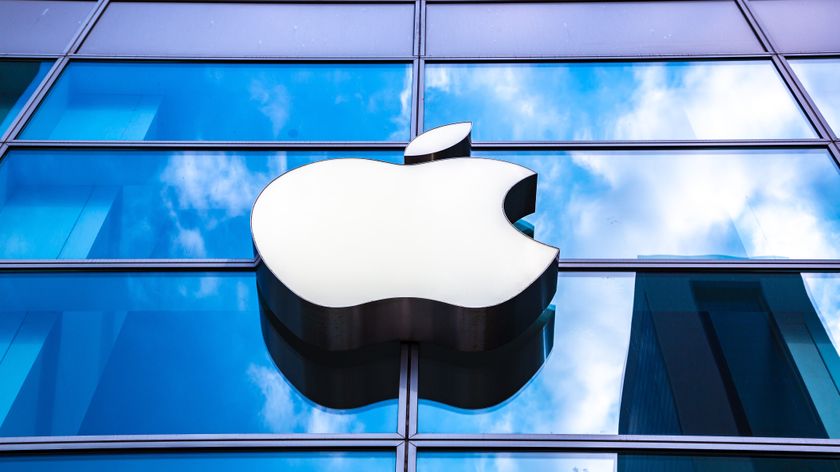Microsoft: How technology can solve the big problems in your school
Microsoft lays out its goals to help schools across the UK

The education sector has benefitted hugely from the advent of smart, connected technology in classrooms over the past few years. Thanks to recent advances in both software and hardware, students are able to enjoy more immersive learning experiences in a range of subjects, and teachers are able to prepare and evaluate the work being done more effectively than ever.
But all this technology needs to be chosen carefully in order to ensure it really does benefits both staff and students, and with school budgets often tightly monitored, making the right decisions can be crucial.
With its decades of expertise across the software industry, and an increasingly high profile in the computing hardware space, Microsoft feels it has a key role to play in forming the tech-friendly classroom of tomorrow.
- Purpose and inclusivity central to Microsoft’s education strategy
- Best Chromebooks for schools in 2020
- HP takes its education tools on tour
“Education is incredibly important to Microsoft,” Chris Rothwell, Microsoft UK Director of Education told TechRadar Pro at the recent BETT 2020 event in London.
“We do want to put more focus on how technology can help solve some of the challenges in education, and make sure that we continue to build capability that allows us to take advantage of their technology innovations.”
“There is more of an across the board focus on how we help teachers get ahead, get comfortable with the technology and what it can do and and how it can help them work and teach more effectively.”
Rothwell notes that despite technology becoming a more common site in learning establishments at all levels, there are still a large number of challenges to overcome in order to make sure students get the most out of these latest tools.
Are you a pro? Subscribe to our newsletter
Sign up to the TechRadar Pro newsletter to get all the top news, opinion, features and guidance your business needs to succeed!
“I feel like the appetite and interest in how technology helps solve some of these problems in education has evolved,” he notes.
“The conversations have moved from let's just throw technology at the problem, you just need devices and then you're fine...what we're starting to see with customers is a slightly more pragmatic conversation that I'm pretty sure that technology can play a part in helping address some of the challenges that we see. How do we now do that?”
“Yes, it's about teaching and learning, but it's also about how staff work, and it's about how you run an organisation. I would say probably, education is still catching up on thinking about the role that technology plays in helping staff work and actually organisations run.”

At BETT 2020, Microsoft showed off a wealth of technology solutions that it says can help schools achieve more than they ever dreamed. This ranged from the free-to-use Office 365 for Education software platform to affordable laptops costing from just £175, targeted at those schools who are keeping a tight eye on their budget.
“There's no shortage of people that deeply care about trying to get education right,” Rothwell notes. “And yet, it's such a nuanced and interdependent kind of sector that really depends on where you are, who you are - and so picking and choosing the right solutions is really important.”

Microsoft recently revealed its “Staff of 2030” report, which examined just what the teachers of the future will require in terms of technological needs, especially as millennials and Generation Z are soon set to make up a significant proportion of the teaching workforce.
The study found that the largest benefits of education technology were seen as allowing more engaging learning experiences, but also some concerns surrounding the use of technology in the classroom, with respondents saying they feared it could lead to a loss of traditional skills and knowledge.
Getting the right technology embedded into the learning process will be vital to educating the students of tomorrow, and looking forward, Rothwell is under no doubt that Microsoft will need to adapt as the needs of schools change in the coming years.
“If you think about the pace of change in technology, I think this is going to be something that we're always going to need to keep an eye on how we keep up,” he notes.
“The world is increasingly digital, and therefore people have to be able to think about and deploy and use digital technology in a way that actually helps them get stuff done... so how do we build digital skills capability alongside the things that people are going to need, like creativity and computational resilience?”
“We want to think about how we help customers and teachers individually prepare for that world.”
- These are the best tablets for schools in 2020

Mike Moore is Deputy Editor at TechRadar Pro. He has worked as a B2B and B2C tech journalist for nearly a decade, including at one of the UK's leading national newspapers and fellow Future title ITProPortal, and when he's not keeping track of all the latest enterprise and workplace trends, can most likely be found watching, following or taking part in some kind of sport.









